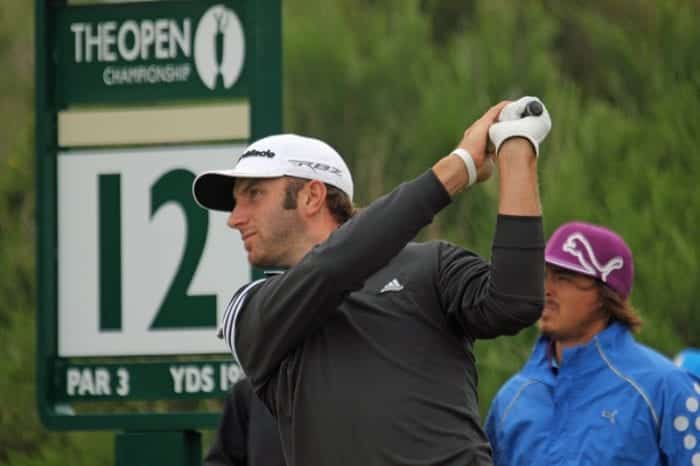
People are asking whether Dustin Johnson has a personal injury case from the slip and fall injury he suffered in his rental home as he prepared for the Masters Golf Tournament this weekend. We thought it would be interesting to look at the issues a case like his might present were it to happen here in Virginia.
The issues fall into three categories – whether Johnson’s landlord is liable for his injuries, the nature of damages Johnson might be entitled to recover, and whether the landlord has the financial resources to pay those damages. Given the enormous amount of money at stake in the Masters, attention tends to go directly to the damages question. Legally, though, the other issues – liability and ability to pay – are equally important.
The question of liability depends on facts that cannot be known from reading news reports. We do not know, for example, whether the landlord had a hand in creating a dangerous condition on the stairs where Johnson fell or whether the condition of the stairs was so open and obvious that Johnson should have seen it. Those questions and many others bearing on the liability issue go beyond the scope of our modest blog today.
The third issue – ability to pay – usually depends on whether the landlord has adequate insurance. Though critically important to the viability of any personal injury claim, whether Johnson’s landlord would have the ability to pay is not of great interest for our blog. The interesting issue is the nature of the damage evidence Johnson would be allowed to present in court. The answer to that question, like most legal questions, is that it depends. Under the Virginia Model Jury Instructions, his damages could include the amounts needed to fully and fairly compensate him for:
- His bodily injuries and the effect his injuries have on his health;
- His physical pain and mental anguish;
- Any disfigurement or deformity he might suffer;
- The inconvenience caused by his injuries;
- His medical expenses;
- His lost earnings;
- His lost earning capacity; and
- Any property damage he sustained in the fall.
These elements of damage include harms Johnson suffered since the accident and harms that he is reasonably expected to suffer in the future. The first four elements are known as general damages. They include the amount needed to fully and fairly compensate Johnson for those losses, clearly a matter of opinion. The next two categories – medical expenses and lost earnings – are called special damages. They are subject to specific measurement. The lost earnings component is probably of most interest in the Johnson case. On the surface, that amount seems enormous, but we should break it down to gauge the true extent of his lost earnings claim.
Johnson probably believes, and reasonably so, that he has suffered an enormous financial loss. The Masters’ purse for 2017 is $10,000,000. The winner takes $1,800,000. The top five players make over $400,000 each. The next 23 players make over $100,000 each. As he currently holds the world number 1 ranking and came into The Masters winning his last three events, Johnson is a great player. He might have earned the winner’s share had he not been injured. He almost certainly believes that he would have finished in the money with the group getting $100,000 each. Does that mean that he is entitled to damages in either of those amounts? Had this case happened in Virginia, the answer is, “probably not.” Virginia law does not award damages for what might have happened or for what a person sincerely believes was lost. The law requires reasonable proof that a particular loss probably occurred or is likely to occur in the future. This standard is often called a preponderance of the evidence. Another way of saying preponderance of the evidence is to say that it is more likely than not that a loss has occurred or will occur. Athletic events being what they are, it seems speculative to suggest that Johnson would have finished in any particular place in the contest. For all we know, he might have missed the cut and not won any money. On the other hand, if he had an endorsement deal that would have paid him simply to participate, then he might be able to prove that the injury cost him the amount of that endorsement deal. The bottom line, then, is that the amount of Johnson’s lost earnings will be the amount he can prove by a preponderance of the evidence, not the amount he or his fans sincerely believe he lost.
The next category of damage, lessened earning capacity, is often confused with lost earnings. The difference is that lost earnings include specific items of lost income. Damages for lessened earning capacity compensate people when they lose the ability to work at their calling, even if they find another way to earn a living that is just as lucrative. The topic of lessened earning capacity has some counterintuitive twists and turns. Tune in for future blogs on that subject.
The last category, property damage, is probably not an issue in Johnson’s case, even if the fall damaged, for example, a driver of great sentimental or superstitious value to him. To be blunt, Virginia law does not much care about a victim’s emotional attachment to items of property. That is another subject for future blogs.
If you’d like to learn more about what makes a legitimate case, visit our website. If you have questions about a premises injury you suffered, give us a call for a no-fee evaluation: 800-969-1650.